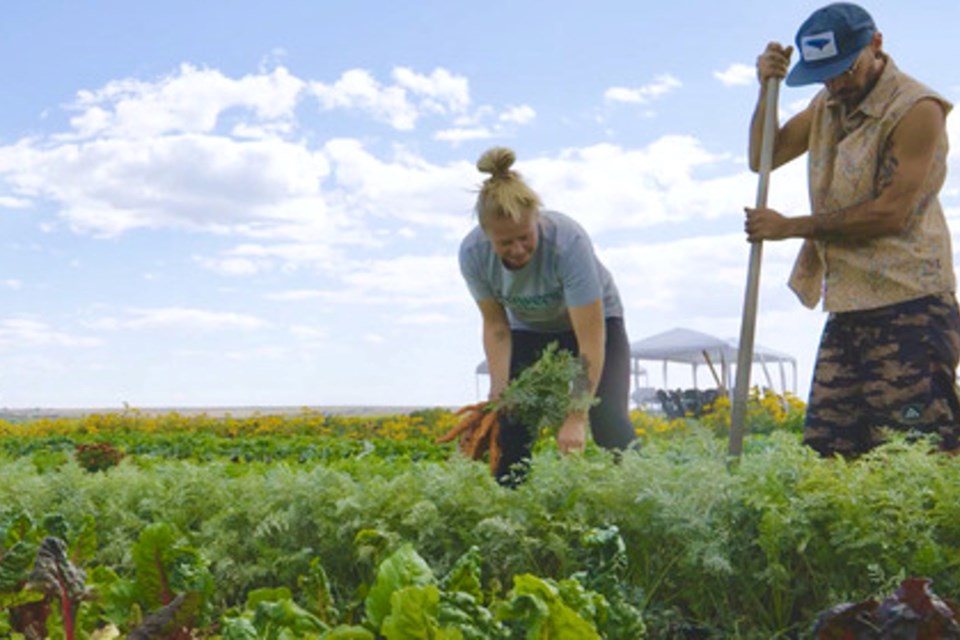NEWS RELEASE
BOULDER COUNTY
*************************
Boulder County has launched the Soil Health Initiative, a new grant program that will provide $1.1 million to local food producers for projects that foster soil health and advance sustainable agricultural practices. Farmers and ranchers who operate on leased Boulder County Parks & Open Space land, private land, or both, can apply for funding until the February 12, 2024 deadline. Grants will be awarded in March.
$1.1 million in funding is available for the 2024 grant cycle, with $100,000 of funding provided by Boulder County Zero Foodprint member restaurants and businesses. Grants will be awarded based on how well applicants incorporate the United States Department of Agriculture's (USDA's) principles to improve soil health, including minimizing soil disturbance, maximizing soil cover, increasing plant diversity and/or livestock integration, and ensuring the presence of living roots. Examples of eligible practices include no- or reduced-tillage, cover crop usage, rotational grazing, and crop rotation.
This initiative aims to support Boulder County agricultural producers in enhancing soil health, which the USDA defines as soil's capacity to be a vital living ecosystem for plants, animals, and humans. Healthy soil can increase farmers' productivity and profitability and benefit the community by improving wildlife habitats and minimizing flood risk. Additionally, soil is the largest land-based carbon sink; its sustainable management is a crucial component in addressing the climate crisis.The United Nations reports that human land management practices have moderately to severely degraded approximately 33% of the world's soils, leading to increased erosion, reduced food production, and elevated atmospheric carbon levels.
“Local food production and the success of our farmers and ranchers both begin with one key element: healthy soil,” said Boulder County Commissioner Ashley Stolzmann.“It's more than just dirt; it's a living system that nurtures diverse plant and animal life, helps us adapt to climate challenges, and conserves water during droughts. With the launch of our 2024 Soil Health Initiative grant program, we are excited to continue to work with local producers to spotlight this crucial component of our ecosystem and empower our farmers and ranchers to adopt practices that will sustain our land and community for generations.”
“The Colorado Department of Agriculture (CDA) is delighted to work with Boulder County and the Boulder Valley and Longmont Conservation Districts to support Colorado farmers and ranchers in building better soil and resilience to drought,” said Cindy Lair, Deputy Director of CDA's Division of Conservation Services.“We look forward to supporting this initiative by integrating the Saving Tomorrow’s Agriculture Resources — or STAR — tool, which will help farmers and ranchers assess and manage nutrient and soil loss and set important benchmarks for evaluating soil health. Boulder County is leading the way for local governments by incentivizing farmers and ranchers to try soil-building practices.”
The application period for the Soil Health Initiative is now open and will close on Feb. 12. Applicants must have operated a farm or ranch in the county for at least two years and may only submit one application. Visit the Soil Health Initiative webpage for more details and to apply.
Running parallel to the Soil Health Initiative, an updated Sustainable Food & Agriculture Fund will now focus on non-soil health related projects related to education, market infrastructure, processing, and support for frontline farm workers. Visit the Sustainable Food & Agriculture Fund webpage for more details and to apply.
*************************



